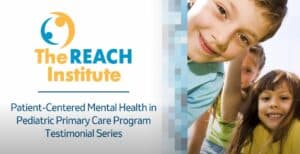ADHD medication “holidays”?
- June 13, 2022
- The REACH Institute
- ADHD, Medication Parents,
 As summer rolls around, families may ask whether their children can have a “holiday” from their psychoactive medication, especially for attention-deficit hyperactivity disorder (ADHD). We asked Lawrence Amsel, MD, MPH, a REACH faculty member and associate professor of psychiatry at Columbia University, to lay out the pros and cons.
As summer rolls around, families may ask whether their children can have a “holiday” from their psychoactive medication, especially for attention-deficit hyperactivity disorder (ADHD). We asked Lawrence Amsel, MD, MPH, a REACH faculty member and associate professor of psychiatry at Columbia University, to lay out the pros and cons.
“First, let’s be clear that we’re talking only about the first-line stimulants for ADHD,” said Dr. Amsel.
Most psychoactive medications build up over time to effect biochemical changes. “If you taper off an antidepressant or anti-anxiety medication, generally it’s to see whether the patient can function without the drug or to switch medications, not to have a so-called ‘medication holiday,'” said Dr. Amsel.
By contrast, stimulants like amphetamine/dextroamphetamine (e.g., Adderall) or methylphenidate hydrochloride (e.g., Ritalin) are basically, as Dr. Amsel explained it, “either on or off. These medications act quickly and clear out of the system quickly. Even the long-acting preparations do their action and are cleared within a day.”
For that reason, he is willing to discuss the idea of a holiday with patients and families.
He noted that clinicians have to balance two realities:
- For most children, breaks from their ADHD medications lead to re-emergence of symptoms. Keeping them stably on their medications is therefore the best course.
- Clinicians have to keep family caregivers on board with their children’s treatment regimen.
“Our patients need us to maintain a long-term alliance with their families,” said Dr. Amsel. “If the parents feel strongly about taking a break, we need to discuss it with them.”
Patients and families may give various reasons for wanting a break.
“My child is doing so well. Maybe he doesn’t need the medication any more.”
Some children’s ADHD symptoms, particularly those related to hyperactivity, improve with age. If the child has been functioning well on the stimulant for at least two years, it might indeed be time for a test. “But I wouldn’t call that a holiday,” said Dr. Amsel. “It’s a therapeutic trial. If all goes well, that child may not need the medication any more.”
“We’re concerned about side effects.”
The research describes slowed growth on ADHD stimulants, but mostly in the first year of use; the effect lessens in subsequent years. If the medication is working well but appetite suppression and weight loss are pronounced, a well-supervised break may help. Sometimes these side effects do not re-emerge when you restart the medication.
“This medication doesn’t seem to be working. Could we go off it and then go back on?”
That line of reasoning might work for some other classes of medications, said Dr. Amsel. But if an ADHD medication stops working, the most logical step is to try a different medication.
“It’s summer, and Casey doesn’t have to focus on schoolwork. They deserve a break.”
This idea underlies what Dr. Amsel would call a true medication holiday.
If families feel strongly about taking a break, Dr. Amsel recommends discussing the pros and cons in order to come to agreement about whether and how to proceed.
- Emphasize that most children re-experience ADHD symptoms after stopping the medication.
- Find out what the child and family are planning to do over the summer.
- Use these summer plans to discuss how much safer and more fun these activities can be when the child is able to focus. If a teen has a summer job as a camp counselor or delivery driver, emphasize that even a momentary lapse of attention can have negative consequences. If a child wants to hang out with friends, remind them how much easier it is to get along with peers when they aren’t experiencing ADHD symptoms.
If the patient and family continue to feel strongly about a medication holiday, and if you don’t know of any imminent danger, Dr. Amsel suggests that you can agree to a trial–with conditions.
“Make a contract with them,” said Dr. Amsel. “Tell them that they can try going off the medication, but, if it doesn’t work, they have to go back on.”
Identify in advance specific indicators of the return of symptoms, such as losing track of a camper’s whereabouts or getting into a playground fight.
“If you don’t identify these indicators, there can always be another explanation for the behavior problem,” said Dr. Amsel. “But if you’ve looked at the possibilities in advance, both child and parents are more likely to accept that this is an ADHD issue, due to coming off meds, rather than bad luck.”
Follow-up is crucial. “I schedule a follow-up call in a week,” said Dr. Amsel. “The parents should call me before that if anything seems wrong, but definitely check in after a week. Many children will be experiencing symptoms by that time. Some symptoms will be problematic, a reason to restart meds. Some will be safe and tolerable enough to allow the holiday to continue.”
The bottom line is that ADHD medication holidays–true holidays, as opposed to a trial of whether the patient still needs medication support–are not an optimum strategy for best outcomes. However, some families may want them. To maintain the long-term therapeutic alliance, you can facilitate medication holidays as a supervised, careful experiment.
Resources
For clinicians
- Ibrahim K, Donyai P. Drug holidays from ADHD medication: International experience over the past four decades. J Atten Disord; 2015;19(7):551-568. doi:10.1177/1087054714548035
- Lohr WD, Wanta JW, Baker M, Grudnikoff E, Morgan W, Chhabra D, Lee T. Intentional discontinuation of psychostimulants used to treat ADHD in youth: A review and analysis. Front Psychiatry; 2021;12:642-798. doi:10.3389/fpsyt.2021.642798
For families
ADHD: The Pros and Cons of a Drug Holiday from the Child Mind Institute
Categories
- ADHD
- Anti-racism
- Anxiety
- Assessment & screening
- Autism
- Child mental health
- Coding
- Cognitive behavioral therapy
- College transition
- Culturally responsive
- Depression
- Eating disorders
- Foster care
- Grief
- High-risk children & youth
- LGBTQIA
- Medication
- Parents
- Patient communication
- Pediatric primary care
- School refusal
- Sleep disorders
- Suicide
- Trauma
- Show All Categories
Register for courses
“The REACH Institute Video Testimonial: Hilary  ”
”
